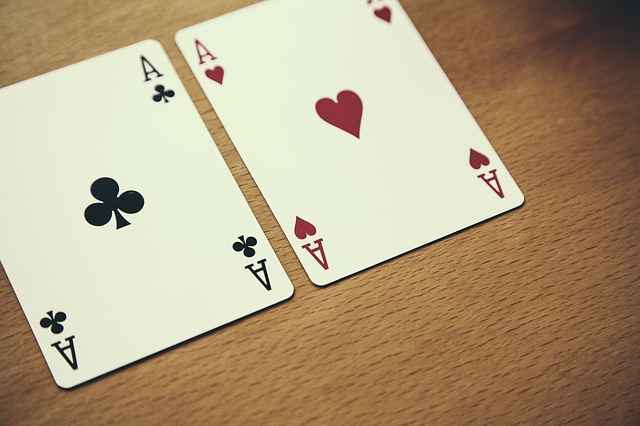
Poker is an American institution, played across the states for more than 150 years.
It arrived from France around the time of the Louisiana Purchase and made its way along the Mississippi on riverboats before landing in the Wild West. There, it took on a new form, played in dusty bar rooms and often leading to violent incidents. Will Bill Hickok lost his life in a poker game, which entered into legend as his final hand, aces and eights, became known as the Dead Man’s Hand.
Texas Hold ’em was first played in Robstown, Texas, where it gets its name and involves a player being dealt two cards, with five community cards laid down to complete a hand. It entered the world’s consciousness thanks to being adopted by the World Series of Poker as their variety of choice, something we still see today.
Texas Hold ’em is one poker variant that feels adaptable for any situation. The spy James Bond is a suave character, but he’s been seen playing Texas Hold ’em. It still appears in Wild West-themed media, such as the video game Red Dead Redemption, and people play it in basements and garages across the United States. In fact, more people probably understand how to play Texas Hold ’em than any other variant, even the simpler ones on which it is based. If you say you play poker nine times out of ten, it will be Texas Hold ’em you’re referring to.
With so many players, you might want to try and get an edge the next time you sit down with your friends, whether they’re cowboys, spies or just your buddies from the bar. Either way, these three tips will soon see you raising the stakes on anyone you face across the table.
Understand The Value of Your Hand
It might be obvious to say you must understand the value of your hand, but the importance cannot be overstated enough. There might be a temptation to play if you get a King and a Four, especially if there’s another King on the flop. However, a high card does not indicate a strong hand; in a big game, you’re still at risk if a king drops on the flop. Sure, you might have a pair of kings, but it’s likely someone else has a king too, and if they do, they’re likely to beat your hand. If an ace drops on the flop, it’s even worse; your pair of Kings won’t cut it. However, if you’re one-on-one, a high card is of value. Always remember the value of your hand is situational, and good hands change throughout the game.
Learn to Bluff
When people play poker for the first time, they think it’s great fun to bluff, but bluffing in itself is not a route to victory. People think that bluffing is going all in when they have nothing and scaring off their opponents. It might work once, but you’ll soon get found out, and the game will be up. Bluffing is about smaller wins, testing the water to see how things go. It’s also situational, as with the last tip; if you’re in a game of four, and everyone else has checked, you might want to lay a bet even if you have nothing; you’re planting a seed of doubt in people’s minds. If someone raises, perhaps they have something, and your bluff has cost you a small bet, not all your chips.
Play Slow
Imagine you’re dealt the King and Queen of hearts, and a flop brings up the Ace, Eight and Two. That’s a flush, and nobody is beating it; there’s no chance of a straight for anyone else. It’s a hand called the “nuts”, and it’s not beatable. You know it, your opponents don’t, so what do you do? Going all in immediately might score them off, so instead, play sensibly. Act like you have very little, a sensible bluff, but raise the stakes slowly. It would help if you used the position to squeeze as many chips as you can from your opponents, and going All-In straight away won’t do that. Learning to play a good hand is as important as learning to make the best of a bad one.
Tags: online gambling, poker, Texas hold 'em


